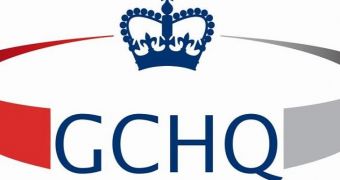Following revelations about the involvement of the GCHQ in the NSA’s spying efforts, there’s going to be some legal troubles for the Brits.
The Intercept has recently reported that the Government Communications Headquarters (GCHQ) has been working with the NSA to develop surveillance systems capable of covertly breaking into millions of computers and networks from anywhere in the world.
Privacy International, a civil liberties group based in London, has filed a legal complaint against the Government Communications Headquarters (GCHQ), accusing the agency of violating European human rights laws through its hacking techniques, saying that they are not subject to sufficient safeguards against abuse.
“This type of activity, often called ‘hacking,’ is a criminal offense in the UK. The Computer Misuse Act 1990 (CMA) prohibits unauthorised access to a computer, both to get at any programmes or data on that computer (Section 1) or with knowledge or reckless disregard for the fact that such access may impair the operation of the computer (Section 3),” reads a blog post from Privacy International explaining the law behind the legal challenge it brought against GCHQ.
The group believes that the GCHQ is guilty of both and seeks to obtain information from the target’s computer, use their cameras and microphones to conduct surveillance and more.
While Privacy International admits that it’s rather unclear whether the GCHQ is exempt from the laws against hacking, it notes that the British spy agency is still governed by the requirements of the European Convention of Human Rights, which protect the right to privacy and to freedom of expression.
On the other hand, however, the Intelligence Services Act of 1994 notes that hacking activities are only unlawful if they are not authorized by the Secretary of State through a warrant. Basically, if it gets a warrant, then it can do whatever it wants.
The legal complaint filed against the GCHQ is quite lengthy and argues that the agency’s hacking tactics are more intrusive than other “traditional” eavesdropping methods and if left unsupervised, it could “become one of the most intrusive forms of surveillance any government has conducted.”
This isn’t the first time and it likely won’t be the last when the GCHQ finds itself in the hot seat over some information revealed by the media based on Edward Snowden’s leaked files. Its close relationship to the United States has caused the British spy agency quite a bit of trouble and there are several investigations already underway.

 14 DAY TRIAL //
14 DAY TRIAL //